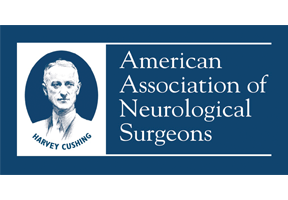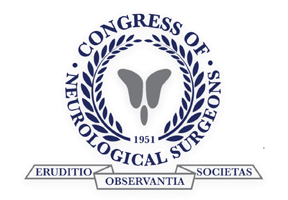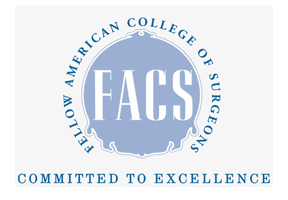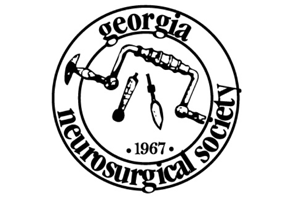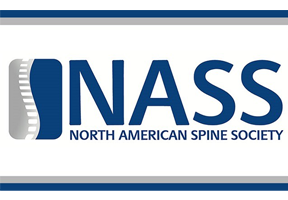It’s easy and common to assume neurosurgery only relates to matters of the brain, specifically matters that require surgery. While that is partly true, there is so much more a neurosurgeon is capable of treating.
A neurosurgeon is a medical doctor who has undergone rigorous education and training to surgically and non-surgically treat conditions of the brain, spine, and nervous system. With expert knowledge and understanding of the nervous system, neurosurgeons offer advanced, specialized care to patients suffering from a range of conditions that disrupt functions of the brain, spine, or nerves.
And because the human nervous system is so complex and connected to other systems of the body, doctors from different medical specialties often consult with neurosurgeons so that they may better treat their patients.
Discover more by exploring these frequently asked questions about neurosurgeons:
Are Neurosurgeons the Same as Neurologists?
The short answer is “no.”
Sometimes, people use “neurosurgeon” and “neurologist” interchangeably, but there is a significant difference between the two. Neurosurgeons and neurologists both focus on the nervous system, treating conditions that affect the brain, spinal cord, and nerves. However:
- Neurologists offer nonsurgical treatments only
- Neurosurgeons are highly trained to surgically operate on the nervous system, whether it be the brain or the spine. Neurosurgeons do not always choose surgical methods, however—if the case allows, they can provide nonsurgical treatment options to help restore patients’ conditions and relieve pain.
What can a neurologist treat?
- Alzheimer’s disease
- Amyotrophic lateral sclerosis (ALS)
- Aneurysms
- Cerebral palsy
- Concussions
- Dementia
- Epilepsy
- Migraines
- Multiple sclerosis (MS)
- Parkinson’s disease
- Strokes
- Tremors
What can a neurosurgeon treat?
Brain
- Brain tumors
- Chiari malformations
- Hematomas (brain bleeds)
- Normal pressure hydrocephalus (buildup of brain or spinal fluid)
- Pituitary tumors
- Trigeminal neuralgia (facial and cranial nerve pain)
Spine
- Disc herniations
- Osteoarthritis
- Scoliosis
- Spinal cord tumors
- Spinal stenosis
- Spondylolisthesis
- Syringomyelia (spinal cysts)
Nerves
- Carpal tunnel syndrome
- Ulnar nerve entrapment
- Neurofibromatosis
What Surgical and Nonsurgical Treatments Do Neurosurgeons Offer?
Neurosurgeons are capable of performing or providing a wide range of surgical and nonsurgical treatments, including:
Surgical
- Tumor removal
- Craniotomy
- Cranioplasty
- Nerve release
- Nerve stimulation
- Discectomy
- Laminectomy
- Spinal fusions
Nonsurgical
- Medication regimens
- Injections
- Physical therapy
- Transcutaneous Electrical Nerve Stimulation (TENS)
How Much Education Does a Neurosurgeon Receive?
Neurosurgeons receive the most education and training, more than any other doctor. Their education and training include:
- Four years of medical school
- One year of interning
- Seven years of residency
In many cases, a neurosurgeon also undergoes at least one year of study for a subspecialty like neuro-oncology or pediatric neurosurgery.
Why Might I Need to See a Neurosurgeon?
If you’re dealing with medical complications that are stemming from or affecting your brain, spine, or nervous system, your PCP or other type of doctor may refer you to a neurosurgeon for proper care.
Symptoms, conditions, or events that indicate an issue that may require care from a neurosurgeon can include:
- Arm or leg weakness
- Chronic back or neck pain
- Dizziness or imbalance
- Intense or chronic headaches or migraines
- Mobility loss
- Numbness or pain in the neck, upper back and arms, lower back, buttocks, or legs
- Pinched nerves
- Stroke
- Sudden vision loss

What Diagnostic Testing Do Neurosurgeons Use?
If you are facing a neurological issue that can be treated with surgery and have been referred to a neurosurgeon, you will likely undergo diagnostic testing to determine precisely what is occurring internally. Depending on your symptoms and the area affected, your neurosurgeon may order the following tests:
- X-Ray – X-rays help show issues or complications with hard and soft tissues. Neurosurgeons use them to see bone damage, joint problems, spinal abnormalities, tumor developments, and more.
- MRI – An MRI, or magnetic resonance imaging, provides a clearer look at your soft tissue, giving your neurosurgeon the ability to observe your brain, bones, joints, spinal cord and discs, and other areas.
- CT Scan – A CT scan, or computerized tomography scan, consists of a series of X-rays taken from different angles that offers a more detailed look at the internal structures of the body. Your neurosurgeon can form a better understanding of your condition, whether it’s a tumor development, brain injury, spinal injury or complication, and more.
- Myelogram – Used for conditions related to the spine and spinal canal, a myelogram uses contrast dye along with either an X-ray or CT scan to show complications with the spinal canal such as disc herniations, tumors, cysts, infections, bone spurs, stenosis, and more.
About the Neurosurgeons at Georgia Neurosurgical Institute
Georgia Neurosurgical Institute features six highly specialized neurosurgeons who have each been rigorously trained to treat and care for conditions of the brain, spine, and nerves. With seven years of advanced medical training and additional years of continued education each, our neurosurgeons are level-one trauma surgeons who offer the most advanced nonsurgical and surgical treatment options to patients. Plus, our team of physicians are pioneers in researching, discovering, and creating technologies and techniques in the field of neurosurgery.
When you are suffering from a condition affecting your brain, spine, or nervous system, turn to the neurosurgeons at Georgia Neurosurgical Institute.
Our neurosurgeons will work diligently with you to discover the root issue(s) and create a treatment plan to resolve your symptoms, relieve pain, and improve or even restore your health. Whether you require surgical or nonsurgical solutions, our team will become your partner in health to help you regain your quality of life.
Schedule an appointment with Georgia Neurosurgical Institute today by calling 478-743-7092.
Georgia Neurosurgical Institute offers exceptional treatments for the brain and spine to patients throughout Middle Georgia. With offices in Macon and satellite locations in Dublin, Locust Grove, and Warner Robins, we’re able to treat patients in and around:
- Dublin
- Forsyth
- Locust Grove
- Macon
- McDonough
- Milledgeville
- Perry
- Warner Robins
Related Articles

